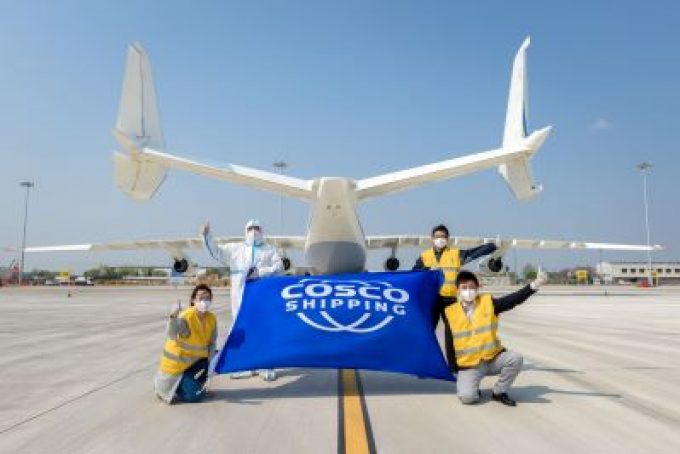Container spot rates have peaked as all major trades see prices fall
There was more evidence in this week’s container port freight markets that peak prices on ...
TFII: SOLID AS USUALMAERSK: WEAKENINGF: FALLING OFF A CLIFFAAPL: 'BOTTLENECK IN MAINLAND CHINA'AAPL: CHINA TRENDSDHL: GROWTH CAPEXR: ANOTHER SOLID DELIVERYMFT: HERE COMES THE FALLDSV: LOOK AT SCHENKER PERFORMANCEUPS: A WAVE OF DOWNGRADES DSV: BARGAIN BINKNX: EARNINGS OUTODFL: RISING AND FALLING AND THEN RISING
TFII: SOLID AS USUALMAERSK: WEAKENINGF: FALLING OFF A CLIFFAAPL: 'BOTTLENECK IN MAINLAND CHINA'AAPL: CHINA TRENDSDHL: GROWTH CAPEXR: ANOTHER SOLID DELIVERYMFT: HERE COMES THE FALLDSV: LOOK AT SCHENKER PERFORMANCEUPS: A WAVE OF DOWNGRADES DSV: BARGAIN BINKNX: EARNINGS OUTODFL: RISING AND FALLING AND THEN RISING

Cosco has moved further into the logistics arena with the opening of a sea and air logistics park in Guangzhou last week.
The 61,640 sq metre facility, in Guangzhou Airport’s economic zone, features warehouses, e-commerce services and temperature-controlled equipment for clients in the pharmaceutical industry, which has grown in importance since Covid.
The pandemic resulted in logistical bottlenecks in major ports that saw container freight rates hitting historical highs, and the three largest liner operators, MSC, Maersk and CMA CGM, have been adapting their logistics strategies by acquiring 3PL companies and developing air freight capability.
Now, with the new airport facility, the Chinese conglomerate appears to be developing its air cargo services through Cosco Shipping Air, which was established in 1995, emulating its larger peers in its move toward vertical integration.
Cosco Shipping’s assistant GM, Han Jun, said: “Opening this centre is part of the Greater Bay Area strategy focused on Guangdong, Hong Kong and Macau, and there will be opportunities arising from the growth of air logistics in this area.”
Guangzhou Baiyunshan Pharmaceutical is the first enterprise to rent space in the facility.
Cosco Shipping’s parent Cosco Ship Holding said during a question-and-answer session with investors on Monday that expanding into logistics would enable the company to improve its solutions to shippers, after some had questioned the direction the group was taking, noting the container shipping industry as highly cyclical and not known to be hi-tech.
One investor had said: “The company and its leaders don’t have relevant experience in the technology industry. The money earned by the company in the past two years should abide by the management’s previous promise of ‘being divided as much as possible’ and shouldn’t be invested in technology.”
Cosco management said the group was responding to shippers’ pain points and challenges, and investing in technology “to stabilise global supply chains”. Forexample, it explained, Taihong, a digitised trailer platform launched recently, had made container transport more efficient.
Regarding dividends, the management said an interim dividend of Rmb2.01 ($0.29) per share would be distributed, the total of Rmb32.35bn ($4.69bn), accounting for half of the group’s net profit in H1 22.
The management added that the plan for 2022-2024 was for 30% to 50% of net profits to be paid out as dividends.
Comment on this article